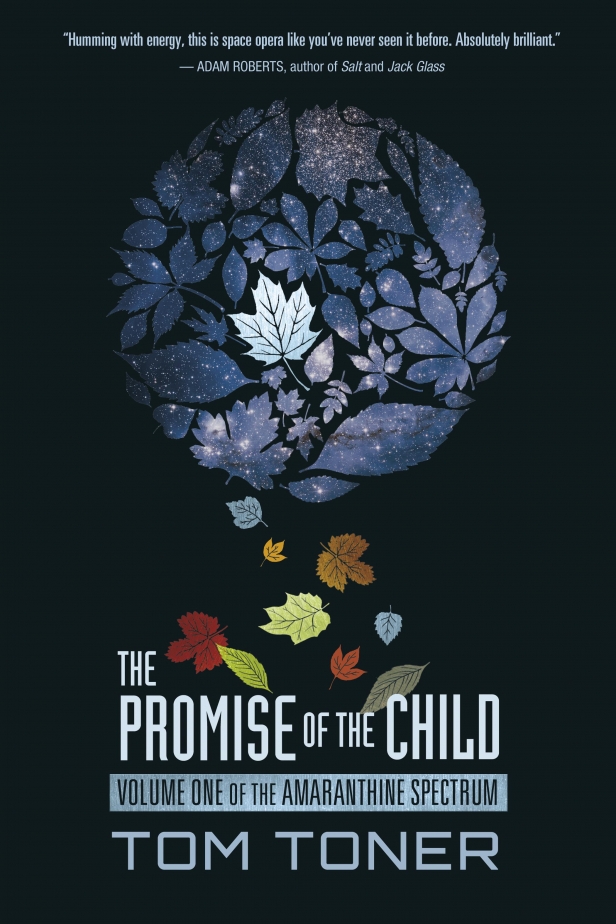Far in the future, humankind has expanded throughout the universe, evolving and developing in ways both numerous and strange. Different evolutions and cultures have produced wildly diverse sections of humanity with highly extended lives. Power struggles among these beings inevitably arise, and the invention of a new destructive device – the Soul Engine – signals an imminent shift in the balance.
Shifting pace and tone between several story strands, The Promise Of The Child is brimming with creativity, its future settings almost in the range of fantasy rather than sci-fi.
It’s a real shame that this doesn’t quite extend to the characters. A parade of powerful men deal in politics, crime, power, albeit perfectly functionally, while the women are predominantly one-dimensional, with a bland love interest the worst offender.
Were The Promise Of The Child’s characters as rich and detailed as its world, this would be a furiously impressive work of fiction; as it stands, it’s simply pretty good. The sections of the book easiest to engage with, for those not interested in teasing out the history, are the familiar exchanges between friends that we find in Lycaste’s story strand, but even these are often formulaic and predictable.
Again, these conversations are perfectly functional; we just wish that they felt like they belonged to real people. While some argument can be made for these being people of a future society, they are recognisable enough that their reactions to love, loss, and conflict should at least be believable, if unfamiliar in execution.
And yet, its mythology and history is finely crafted. Though initially it seems needlessly dense, with a host of unfamiliar names and concepts thrown around, a quarter of the way through it becomes clearer. While it’s refreshing not to have every detail explained, it would have been easier to engage with the many and varied groups, locations, and individuals if we were given more of an immediate context as to why we should care.
That said, Promise is host to a sweepingly ambitious universe as engaging as any Iain M Banks or Peter F Hamilton creation.
Though for the most part we found ourselves drawn into the world itself wholeheartedly, there are a handful of distancing moments. It’s hard to believe that an advanced society of this kind, understandable in so many other ways, would be homophobic, for example.
It’s also difficult to engage emotionally with the characters, especially Lycaste, feeling that his love for a woman overrides her own agency. Still, most of the female characters seem to serve primarily as plot devices, and don’t seem to possess their own realistic agency in the first place.
And yet, the complexity of the worlds and the political and social systems within them is a captivating exploration of humanity extended, for all that it isn’t mirrored in its players. Their lives and decisions and plots are fascinating, but they aren’t for the most part particularly believable.
Still, it somehow doesn’t take much if anything away from the overall experience of sinking deeply into a captivating world; The Promise Of The Child is an incredibly impressive debut novel, with an engrossing plot and delightful oddness that should satisfy any space opera aficionado.
